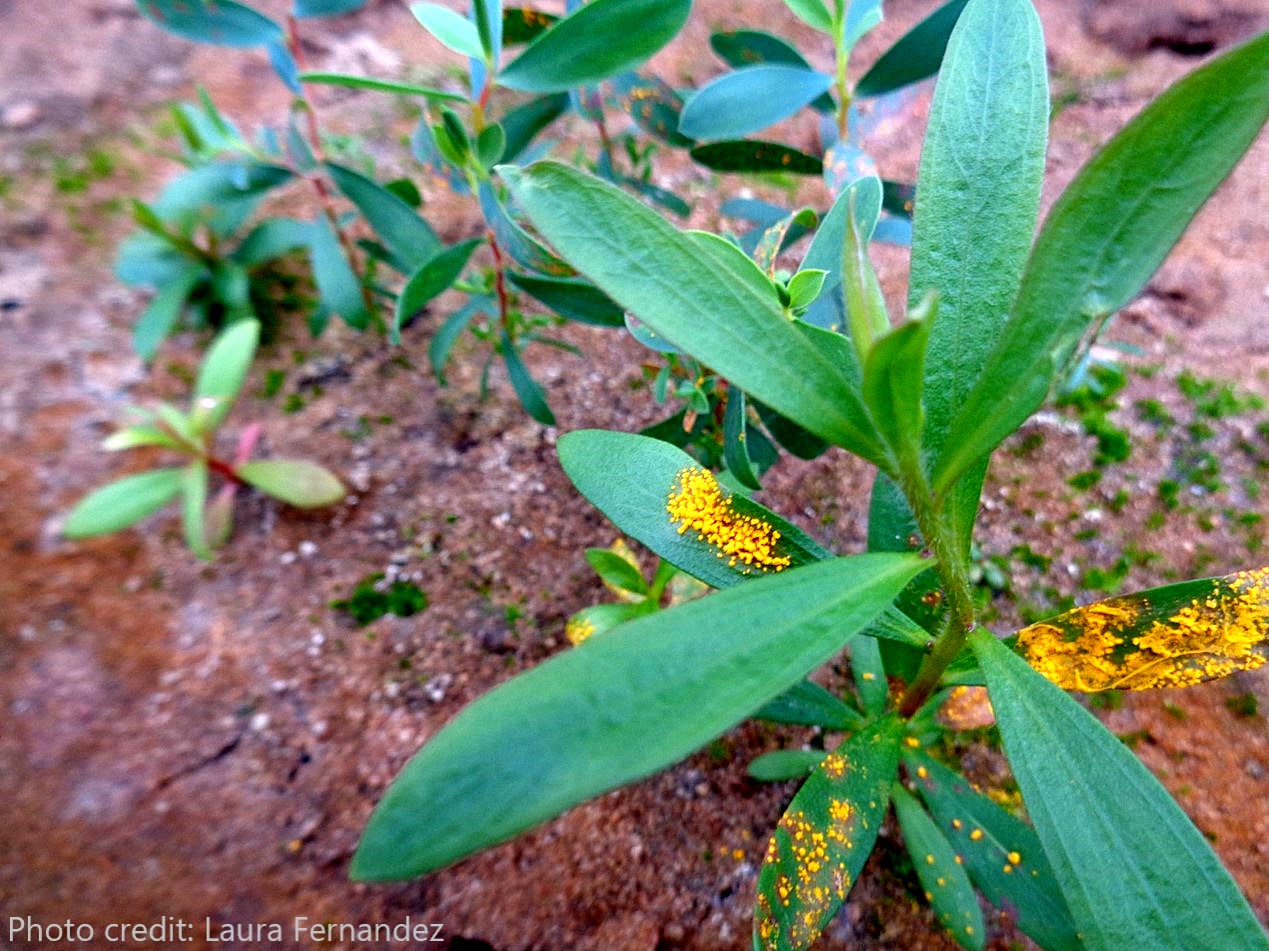E&E PhD Exit Seminar: Molecular and chemical mechanisms of defence against myrtle rust in Australian Myrtaceae
Speakers
Event series
Content navigation
Description

Increased human disturbance to forest ecosystems has exacerbated the spread of fungal pathogens to non-native environments. Rust pathogens (Pucciniales) can spread long distances by human activity and wind dispersal, and can cause severe disease outbreaks in cereal crops and in forest trees. The exotic rust fungus myrtle rust (Austropuccinia psidii) arrived in Australia in 2010 and most species of native Myrtaceae (including Eucalyptus, Melaleuca, Syzygium) are susceptible to infection to various degrees. Rust infection can lead to crown loss and mortality of the trees and so threatens the stability of ecosystems as well as several rural industries that produce terpene-based oils (e.g. tea tree oil) and flavourings (e.g. lemon myrtle). Within-species variation of myrtle rust resistance has been discovered in many native species. Finding the molecular and chemical basis of resistance against myrtle rust in these species is therefore essential in facilitating resistant plant breeding for re-afforestation purposes.
In this talk, I will present my findings on the molecular and chemical basis of rust resistance in the broadleaf paperbark, Melaleuca quinquenervia, a species that is ecologically important to coastal wetland ecosystems. Using de novo transcriptome assembly, GC-MS, and functional characterisation through heterologous gene expression in E. coli, I found resistant plants to over-express genes which may be candidates to myrtle rust defence, and have identified and functionally characterised new terpene synthase genes that showed induction in response to myrtle rust infection.
Location
Eucalyptus Room (Rm S2.05), Bldg 46, RN Robertson Building, 46 Sullivans Creek Road, ANU
